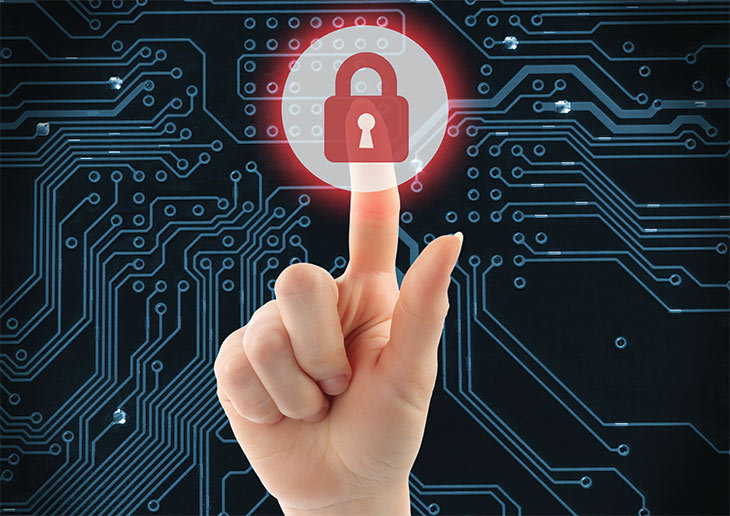The World Wide Web can be a dangerous place, exposing you to people who would steal data, play pranks and even take over your identity. That’s why you need to learn how to protect yourself on the Internet, especially if you handle business transactions or do banking online.
Educate yourself about potential threats and protections, starting with the following online security tips.

Create Strong Passwords
Strong passwords contain a mix of numbers, letters and symbols that are difficult for hackers to crack. Use a sentence or uncommon phrase with 10 or more letters that you can easily remember. Then, make it a stronger password by substituting original letters with numbers, uppercase letters and special characters. For example, you could change “the cat barks” to Th3C@tBarx. Avoid using properly spelled words in your password, use a different password for every website or account, and change your passwords often.
Set Social Media Settings to “Private”
On social media sites, be discreet — make sure that strangers cannot view your personal details. While information such as your vacation plans or birthday party photos may seem harmless, it could let fraudsters know when you were born, when you’re out of the house, and how they might draw more information out of you with a phishing e-mail. Making your photos and status updates private reduces this possibility.
Use Two-Factor Authentication
Two-step, or two-factor, authentication helps prevent hackers from cracking the password to your e-mail or bank account. This process adds a second security hurdle, such as a unique code that’s sent to your phone or a series of security questions that only you can answer. Enabling two-factor authentication whenever it’s offered (including on Facebook, Twitter and Gmail) helps safeguard your personal details.
Install Anti-Virus and Anti-Malware Software
Provide an effective defense against attempts to steal your personal information. Malicious software, also known as malware, is now most often used to make money. Two types of malware — ransomware and data-stealing trojans — are much more common than viruses. Anti-virus and anti-malware programs routinely handle known bad code. Be sure to update regularly to protect against new malicious attacks.
Be Cautious With Attachments and Downloads
Don’t accept unknown e-mails. Your computer can obtain a virus, worm or trojan when you simply open infected e-mails and attachments. If you choose to download files, make sure your security software is enabled and up-to-date and — most important — that you only open attachments that you are expecting. Farm Credit associations typically send documents and confidential information via their secured file-sharing services, which you also should use to transmit documents to your Farm Credit lender.
Beware of Phishing Scams
Phishing attacks come in the form of fraudulent e-mails, phone calls and websites designed to lure unsuspecting users into revealing private account or login information. If you receive an e-mail that includes a website link, don’t click on the link — instead, open a separate browser window and visit the company’s legitimate website directly. You can also verify the e-mail’s legitimacy by phoning the business directly.
Use E-Mail Wisely
Never send your credit card information, Social Security number or other confidential information via e-mail. Only share your e-mail address with trusted sources — do not post it on websites or on forums. Consider creating a separate e-mail address for uses such as newsletters and website subscriptions. Also, do not reply to e-mail from an unknown sender. Even clicking “unsubscribe” could set you up to receive more spam e-mail.
Update Regularly
Keep your computer’s operating system up-to-date by installing routine Windows or Mac updates. For example, when a Windows message pops up saying that an update is available, click to install the update, or run Windows Update and follow the instructions. It is also important to keep software applications such as Adobe Flash and Microsoft Office updated. If you are not sure if an update notification is authentic, go directly to the software company’s website.
– Staff
This article contains excerpts from articles published in Northwest Farm Credit Services’ Yields Magazine.